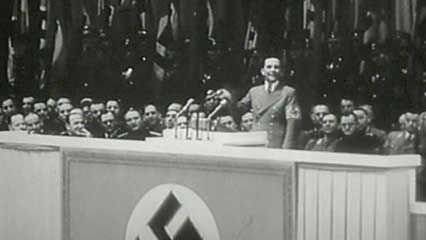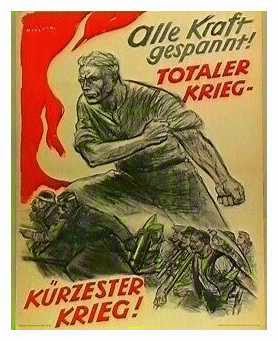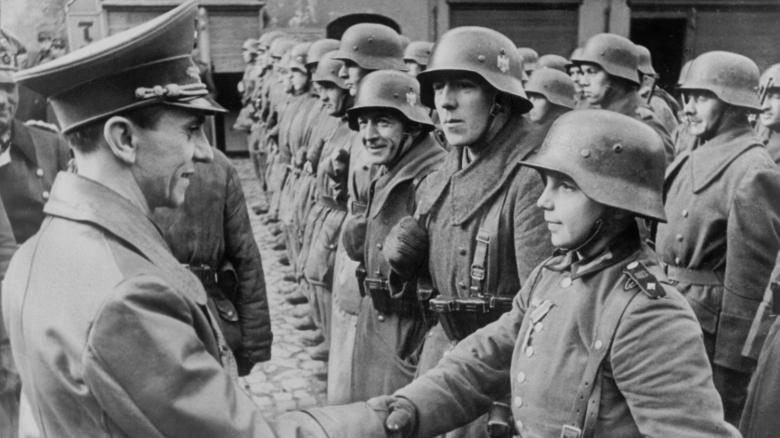What does the term total war describe?
1 Answer
I would think as an example of total war the one declared by Goebbels during WWII.
Explanation:
Towards the end of WWII, when defeat was near for Germany, Joseph Goebbels, during a famous speech, declared the unleashing of Total War as a mean of changing the course of war.

The idea was to mobilize every portion of the German society and direct every aspect of German life towards the fighting of war.
The industry and production of goods in general had to become totally dedicated to the needs of the army and the military machine.
This idea involved not only the heavy industry to produce weapons and vehicles but also the production of chemicals (synthetic fuel, for example), food, clothes, medicines, transportation, etc.

In addition, every thought or resolution had to be adequate to the needs of war: for example, no waste of fuel for private use, no listening to foreign radio speeches and eventually delation of people talking of peace or surrender, handling of warm clothes and food to be delivered to the troops, and finally, become fighters even if too young, old or not trained at all.
In this last idea there is the genesis of the Volkssturm formations: battalions of old and very young citizens drafted to fight as (almost) slave workers (to build fortifications) or hopeless fighters against well armed and trained enemy formations.

A more tragic and possibly horrible aspect of total war was the idea of not leaving anything for the enemy to conquer: this implied extreme sacrifice (fight to the last bullet and then die) and destroy any possible piece of hardware or building that could help the enemy.
In this case the Nazi minister of production, Albert Speer, fortunately refused to destroy German factories, buildings, bridges, railways, etc., disobeying a direct order of Hitler.

